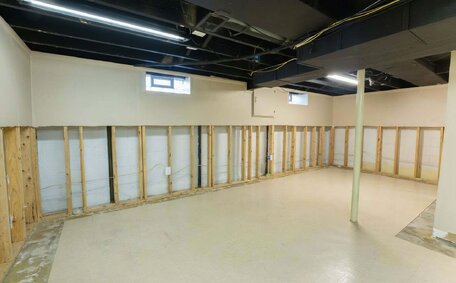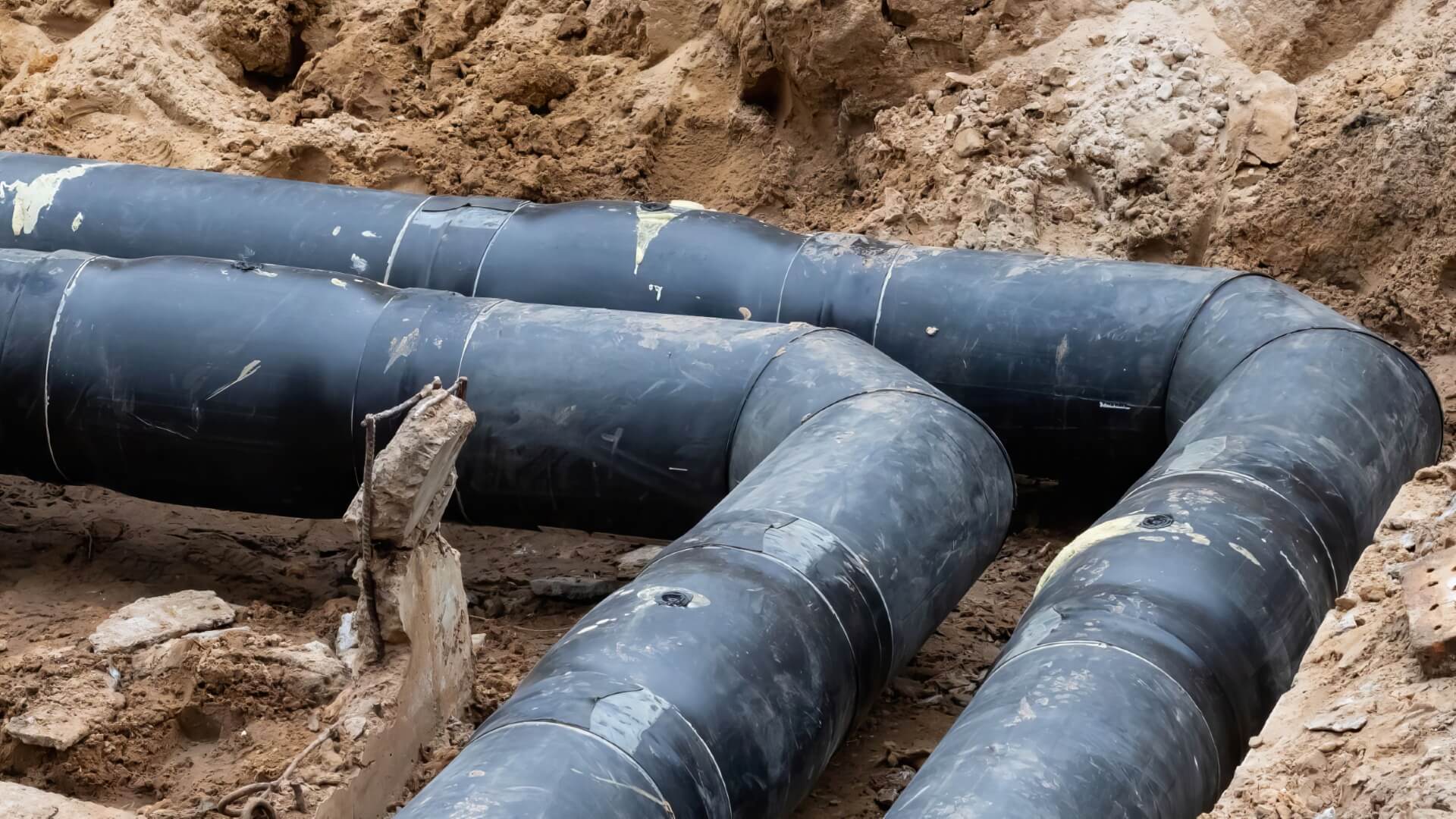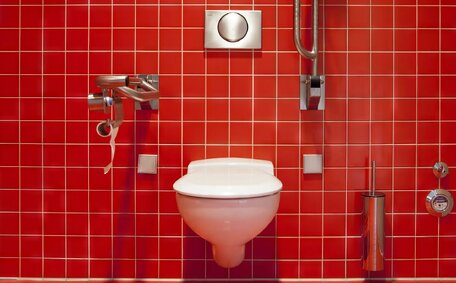Introduction to Preventing Blocked Drains
A blocked drain can significantly disrupt household routines.
Clogged drains can lead to nasty odours, backed up sinks and showers, flooding, and may even damage your plumbing system if left untreated. The good news is that with some simple preventative measures, you can help avoid blocked drains in your house, whether in St Peters or the Central Coast.
Blocked drains often result from the accumulation of hair, food waste, grease, and non-dissolvable items. Minor habit adjustments and regular maintenance can prevent potential blockages.
In this article, we provide expert advice from St Peters plumbers on how to prevent blocked drains, ensuring your drainage remains clear and functional. We’ll cover what you should and shouldn’t put down drains, best practises for drain cleaning and maintenance, when to call a professional, and how to create lifelong habits to protect your plumbing.
Adhering to straightforward prevention tips can save the frustration and expense of dealing with clogged drains.
Common Causes of Blocked Drains in Households
Certain common issues are at the root of blocked drains in many St Peters homes. Here are some of the usual suspects contributing to your blocked drains:
Hair Buildup
Hair washed down kitchen and bathroom sinks, as well as shower drains, can entangle and accumulate, leading to thick blockages that impede your plumbing over time.
Food Scraps and Grease
Cooking leftovers and fats oils down the sink can cling to pipe walls and solidify over time. Food particles can also get stuck, eventually forming a clog that has built up over time.
Non-Flushable Items
Wet wipes, tissues, cotton balls, and feminine hygiene products can cause blockages if flushed.
Soap Scum and Cleaning Products
Soap residues and chemicals from cleaning products can accumulate and react with other particles to create thick sludge inside your pipes.
Tree Roots
Over time, tree roots can find their way into cracks and joints in the pipes, threatening the water flow that drains your home’s exterior drainage system, including the main sewer line. Root overgrowth is a common cause of sewer blockages.
By being more considerate about what is going down into your plumbing, you can sidestep the predicaments of blocked systems. If you’re concerned about blocked drains, don’t hesitate to contact your local drain specialists.
Avoid Putting the Wrong Things Down Drains
To avoid blocked drains, it’s crucial to be mindful of what goes down each sink and toilet in your St Peters home. Certain items should never be poured or flushed, as what can seem harmless may cause significant blockages in your pipes.
Here are some common items to avoid putting down drains:
Cooking Oil and Grease
Collect used cooking oil, grease, and fats in a container rather than disposing of them down the sink. As grease oil cools and solidifies, it coats pipes, especially if they’ve had frequent use sink-wise, and causes major blockages.
Food Scraps
It’s tempting to scrape food waste and oils down into the sink, but these particles might think your pipes are a good hiding spot, so ensure disposal is elsewhere. Put scraps in the garbage disposal or compost instead.
Coffee Grounds
Used coffee grinds compact tightly, better rinsed off with cold water before discarding to spare your drains from clogging.
Hair
Loose hair from grooming can find their way into bathroom drains, clogging your drains by tangling and clumping into obstructions. Remove excess hair before washing.
Paper Products
Paper towels, tissues, and wipes (even those labelled “flushable”) can snag inside pipes and should go in the bin, not down toilets.
Being proactive about exclusion of these harmful items from drains is one of the things can do avoid unnecessary and costly plumbing repairs. Should you have any concerns about your drains, remember to call us, your trusted St Peters drain specialists.
Use Strainers and Traps to Catch Debris
Fitting your home with drain strainers and traps is an effortless method to prevent debris clogs. Here are some tips on using strainers effectively:
Kitchen Sinks
Install a drain strainer in your kitchen sink to trap food scraps before they enter the plumbing. Empty strainers after washing dishes to help prevent built-up debris.
Bathroom Sinks
Sink and shower strainers are essential tools for preventing hair and other particles from clogging drains. Look for strainers with small holes to capture finer debris.
Bathtubs and Showers
Use a hair catcher or drain screen to prevent hair from clogging bathtub and shower drains. This will stop loose hairs from amassing within your drainage system and creating troublesome clogs.
Laundry Tubs
Use a lint trap for laundry tubs to collect fabric fibres that can get flushed down drains.
P-traps and under-sink strainers can capture debris, preventing it from entering your plumbing. Regularly clearing strainers and traps is essential to prevent significant build-up.
Our St Peters plumbing experts can use their expertise to recommend the most suitable drain strainers and traps for protecting your drain pipes from clogs. Contact us today.
Proper Disposal of Fats, Oils and Grease
One of the primary culprits for blockages in household plumbing are oil and grease finding their way down the sink. Cooking oils and grease can easily clog common household pipes, hence the best way prevent clogs is avoiding washing them down drains. For blocked drain prevention, properly collect and dispose of fats, oils, and grease, rather than rinsing them away.
Tips for Proper Disposal
- After cooking, pour used oil and grease into a heat-safe container with a lid rather than the sink.
- Let the grease solidify, then throw the sealed container in your regular household waste.
- Place paper towels over oily cooking surfaces to absorb excess grease, then dispose of the towels.
- Avoid using hot water when washing greasy dishes, as this can liquefy grease that then re-solidifies in blocked pipes.
By disposing of oil, grease, and fat in the garbage rather than the drain, you can avoid blocked drain issues and keep pipes clear. Make it a habit in your St Peters household to always collect cooking grease properly. Your drains will stay clog-free for the long run.
For assistance with grease and oil disposal or maintenance advice, reach out to St Peters Plumbing experts on 1300 349 338.
Regular Drain Maintenance and Cleaning
To keep your drains free of blockages, it’s important to perform regular maintenance and cleaning in your St Peters home. Here are some effective tips to prevent blocked drain incidents:
Hot Water Flushes
Flush each drain with boiling water weekly for up to a minute to dislodge residue. The heat from the boiling water down your pipes will help melt and wash away built-up grease and other residues.
Baking Soda and Vinegar
Empty a half cup of baking soda followed by a cup of white vinegar into the drain. Let the mixture foam and work for 5-10 minutes, then rinse with hot water. This can break up fatty oils and dissolve smaller clogs.
Enzyme Drain Cleaners
Regularly using enzyme-based drain cleaners is a safe method to eliminate build-up. Pour enzyme cleaners down the drains according to instructions, followed by a warm water flush. Enzymes get rid of organic matter over time.
Snaking
Monthly, use a plunger or a drain snake to clear debris from shower and kitchen sink drains and avert significant clogs.
Professional Maintenance
Book professional drain cleaning services with a licenced St Peters plumber to clean your home’s drains biennially. They can catch issues before blockages occur.
By staying diligent with your drainage care, you can avoid expensive plumbing repairs from clogged pipes. Contact our team at St Peters Plumbing on 1300 349 338 for additional tips or service.
When to Call a Professional Plumber
Simple maintenance and cleaning can prevent or resolve most blocked drain issues in St Peters households. However, there are times when a professional plumber is needed to properly address drain problems.
Here are some signs it’s time to call our team at St Peters Plumbing:
Persistent Bad Odours
If you notice ongoing rotten egg or sewage smells coming from drains, a blockage is likely allowing sewer gases to escape.
Slow Moving Water
Drains that drain slowly or produce gurgling sounds may be obstructed. Slow draining can occur as a symptom of a developing clog.
Frequent Backups
If drains repeatedly back up with water, especially after using multiple fixtures, you’ll find a blockage may be recurring further down the system.
Visible Obstructions
You may see objects like hair or grease visibly caught in drain openings. Partial obstructions can lead to full blockages.
Multiple Attempts to Clear
If DIY drain cleaning methods aren’t yielding results, professional equipment and expertise may be required.
Our licensed St Peters plumbers possess the expertise and equipment to rapidly identify and solve drain issues. We offer comprehensive drain inspections, repairs, maintenance and more. Contact us on 1300 349 338.
Adopting Drain-Friendly Household Habits
Adopting some simple, drain-friendly habits in your daily household routine is one of the most effective ways to keep drains free of blockages. Here are some tips to make your home’s plumbing system as clog-free as possible:
Be Mindful of the Sink
Avoid pouring fats, oils, or grease down the kitchen sink. Always use a strainer to collect food scraps and particles, and dispose of them in the bin. Limit soap and chemical use in the kitchen and bathroom sinks as residue can build up.
Optimise Toilet Usage
Responsible toilet use entails flushing solely human waste and toilet paper. Avoid flushing sanitary items, cotton balls, tissues or wipes, even those labelled 'flushable’. Be mindful to not use too much toilet paper.
Maintain Fixtures
Regularly clean drain strainers and sinks to prevent hair and soap residue accumulation. Check outdoor drains, gutters and grates after heavy rain and remove any debris like leaves or sticks. Perform monthly hot water flushes and use drain cleaners.
Be Proactive
Schedule professional drain inspections every 1-2 years to identify and address minor issues before they become major blockages. Establish lifelong plumbing care habits for your household.
Daily practices like cautious sink use, prudent toilet flushing, and regular maintenance can avert drain blockages.
For advice on optimising your household’s plumbing system, contact the professional team at St Peters Plumbing today on 1300 349 338.






